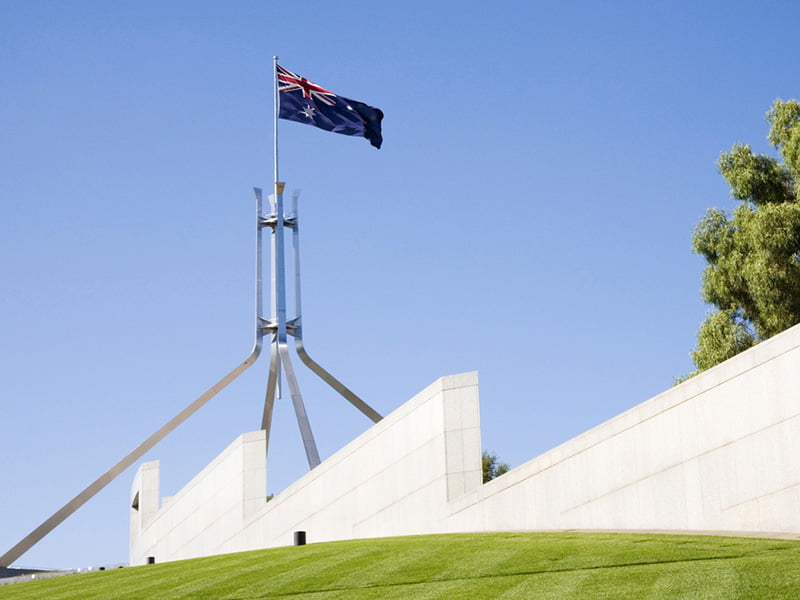Australia’s science and research groups want the government to be bold in its overhaul of national science priorities and an accompanying national science statement, backing a “grand challenge” approach and a goal of leading the world.
The current priorities have not changed since 2015, while the national statement’s objectives are relatively modest and make no mention of Indigenous knowledge and science.
Science and research groups want an upgrade as a new government promises nation building funding and policy for science and technology.
Australia’s major science groups want the priorities — which are to supposed to signal area of national importance and investment — to be informed by ambitious and clearly defined national challenges. Challenges suggested include Australia becoming a clean energy superpower and having the healthiest population on earth.
The groups, representing thousands of scientists, also want a strong implementation plan and supporting policy to ensure the next priorities have more impact than the Turnbull-era version, and also warn not to overlook the discovery research and social sciences that may not fit neatly into the new priorities.

Science minister Ed Husic last year ordered a refresh of Australia’s national science priorities to promote sustainable economic and social prosperity, and recognise Indigenous knowledge.
The current priorities were made in 2015 and are Food, Soil and Water, Transport, Cybersecurity, Energy, Resources, Advanced Manufacturing, Environmental Change, and Health.
The priorities are supposed to signal areas the Australian government considers important and aim to encourage activity and growth, although they do not preclude investment or work in other areas.
The priorities are out of date, Mr Husic declared last year, promising new versions that “reflect our modern society and provide vision for the Australian science system”.
“The current priorities do not mention First Nations knowledge, do not properly acknowledge climate change and fail to adequately engage with emerging critical technologies, which are essential for national prosperity and our wellbeing,” he said.
The national science statement, launched during the Turnbull government’s National Innovation and Science Agenda, makes a long term commitment to engage more Australians with science, build skills and produce research.
It is unambitious compared to the UK’s recent science strategy which seeks to make the nation a “global science and technology superpower by 2030” and recognises science and technology as “the major driver of prosperity, power and history-making events this century”.
Australia’s chief scientist Dr Cathy Foley is leading consultations on the overhaul, which competed its first phase this month. The initial phase is seeking to identify national challenges and principles that would guide priorities, which will be released in draft form later this year for further consultation and finalised by September.
Submissions to the first phase show science and research groups want nothing short of world leading ambitions and a recognition of the existential threats facing the nation.
The Australian Academy of Science has backed the recommitment to national priorities, telling the consultation it is a “crucial function of government”.
“Australia is and remains a middle power in global science, and Australia does not have the capacity of larger economies for massive investment and deep focus across all areas,” the group’s submission said.
“Our limited – and inadequate – support for research should not be spread too thinly.”
The Academy urges the review to consider a foundation for the priorities that would allow a focus on uniquely Australian matters like the local environment and the population’s health, while still encouraging research on matters like energy and climate change.
It stresses the defined priorities, which have historically had an applied research focus, must not lessen work on discovery research.
The priorities themselves must be “expansive and inclusive”, allowing multiple disciplinary perspectives, with the Academy backing “mission-based” priorities for this reason.
Science and Technology Australia, a group representing around 115,000 scientists and technologists, backed a “grand challenge” approach, suggesting national research challenges like Australia becoming a clean energy super power and the healthiest nation on earth.
In its submission, the group also suggest a challenge theme of inspiring a “culturally confident nation” by supporting First Nations knowledge that includes embedding it in school curriculums and promoting it with the country’s first ever Indigenous Chief Scientist.
Setting such bold challenges to guide the national priorities would be part of a declared “vision to make Australia a global STEM superpower”, the group said, urging the Albanese government to follow the bold science ambitions of its UK counterparts.
Some scientists are concerned about the national challenge approach and its potential to overshadow less well defined areas like basic or ‘blue sky’ research.
“While there is a need for investment in research that has a clear line of sight to identified national challenges and priorities, there must always be commensurate investment in research activity outside of these priority areas,” the Academy of the Social Sciences in Australia told the review.
With successive government’s championing the importance of research application and commercialisation social sciences group asked for its research and expertise to “be explicitly included in scope for each of the final national science and research priorities” and for any associated outcome framework to also consider non-commercials domains.
The Australian Academy of Technological Sciences and Engineering (ATSE) also back defined challenges that align with Australia’s strengths like certain types of advanced manufacturing, minerals, agriculture, health and clean energy.
Like the other groups, ATSE expressed concern about an “austere research funding environment” and a talent shortage, recommending a comprehensive review of funding and more government intervention to lift STEM participation.
“To support solutions, there must be an uplift in STEM skills, engendering social license for and investment in science and technology, and the ability for Australia to be a nation of innovators, not adopters of technologies developed elsewhere,” the ATSE submission said.
The government has already flagged climate change, First Nations science and emerging technologies as potential new priorities. Draft priorities are expected to be released in June.
Do you know more? Contact James Riley via Email.

